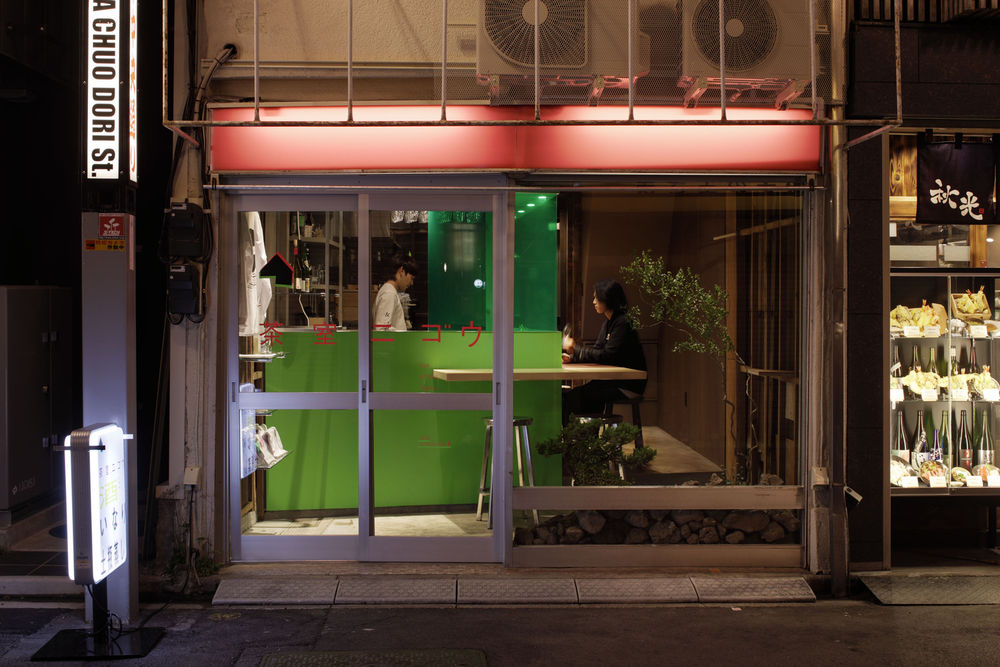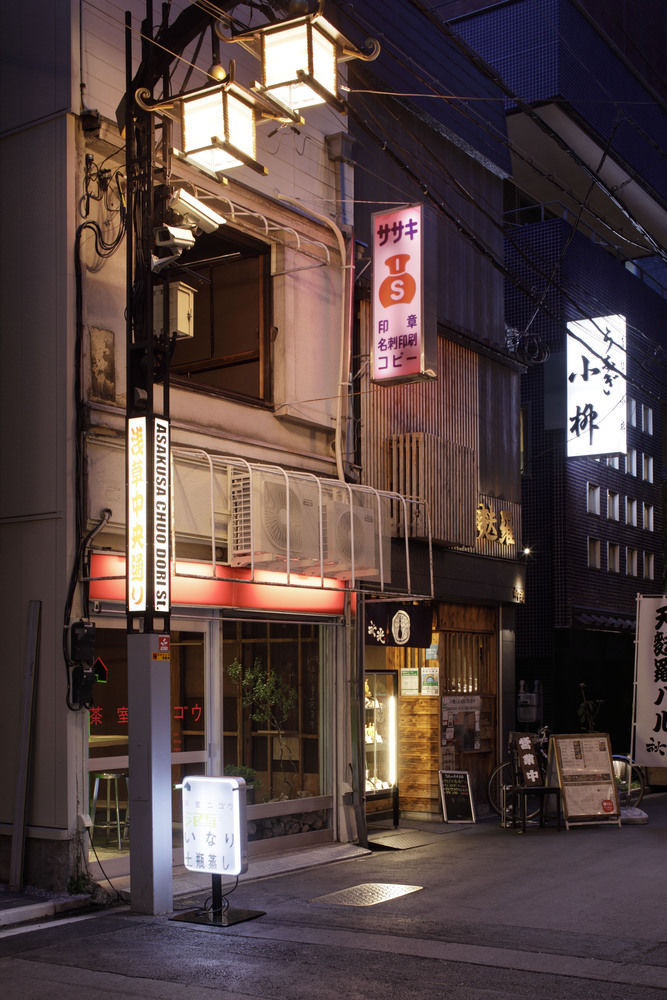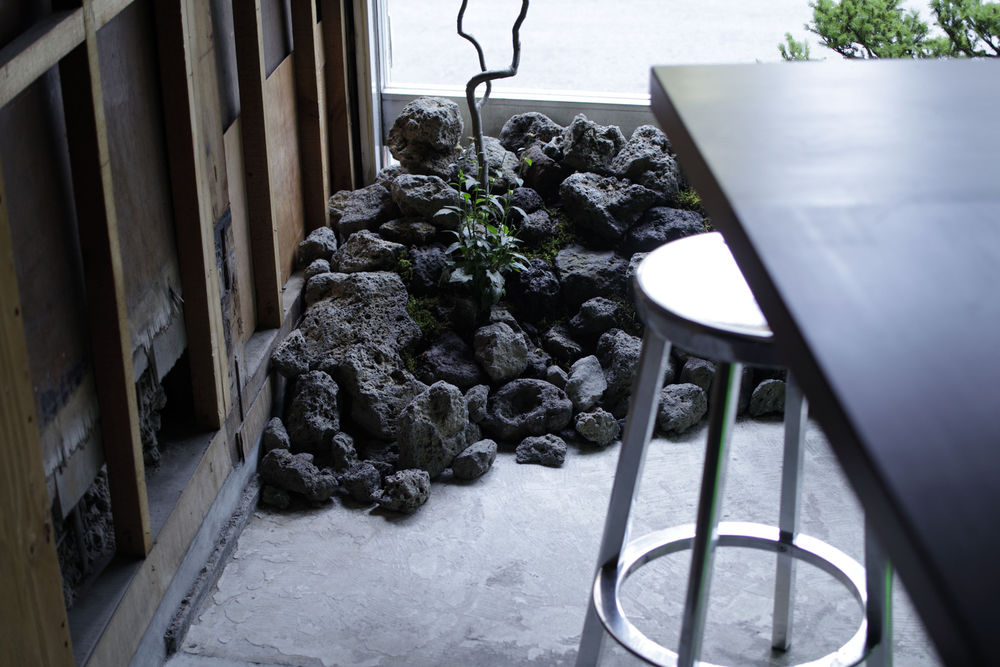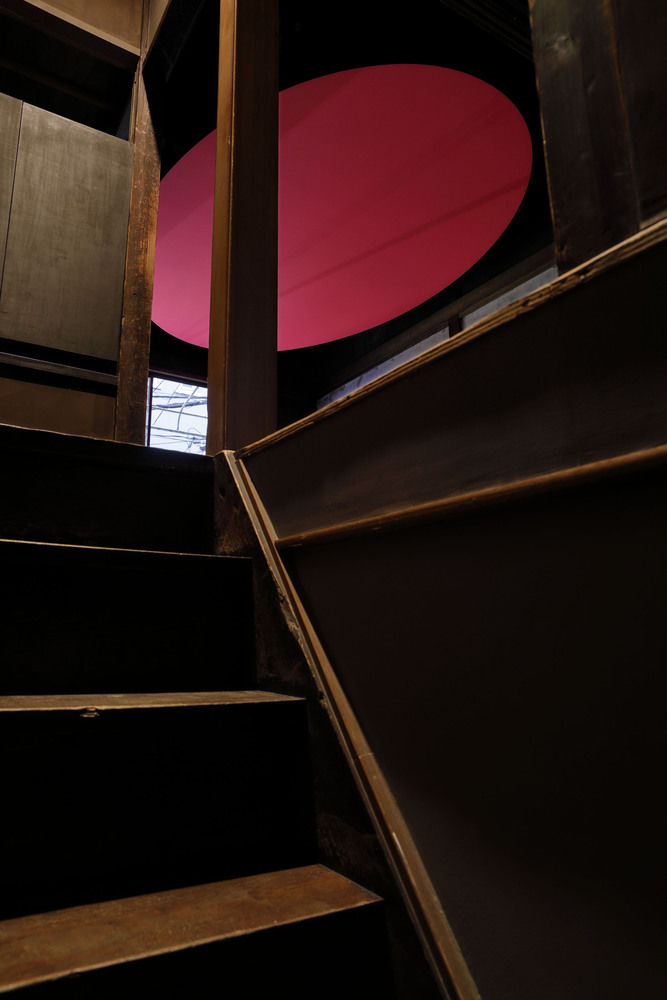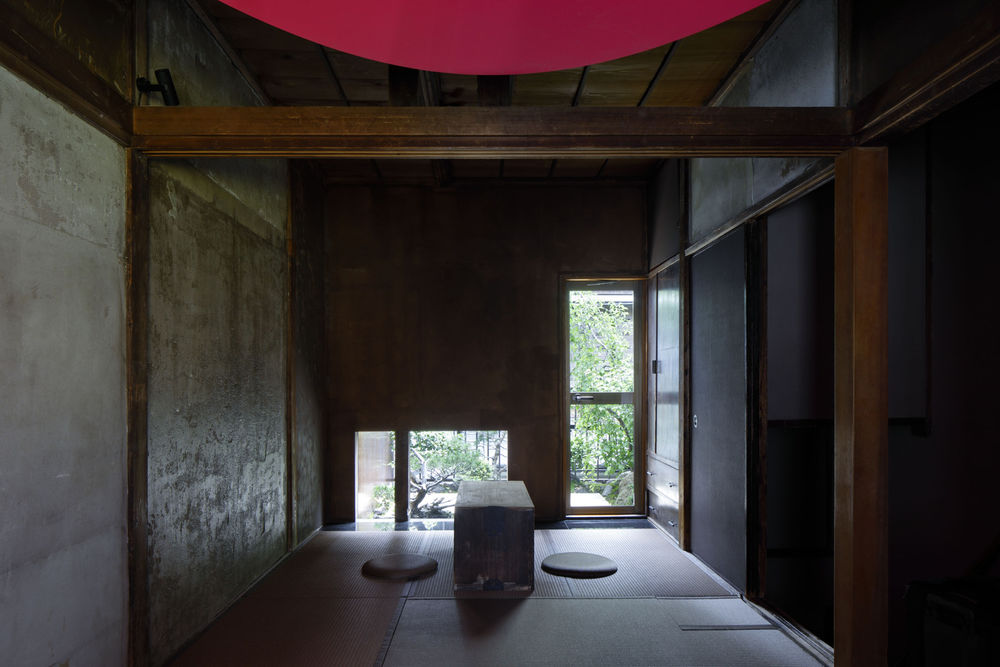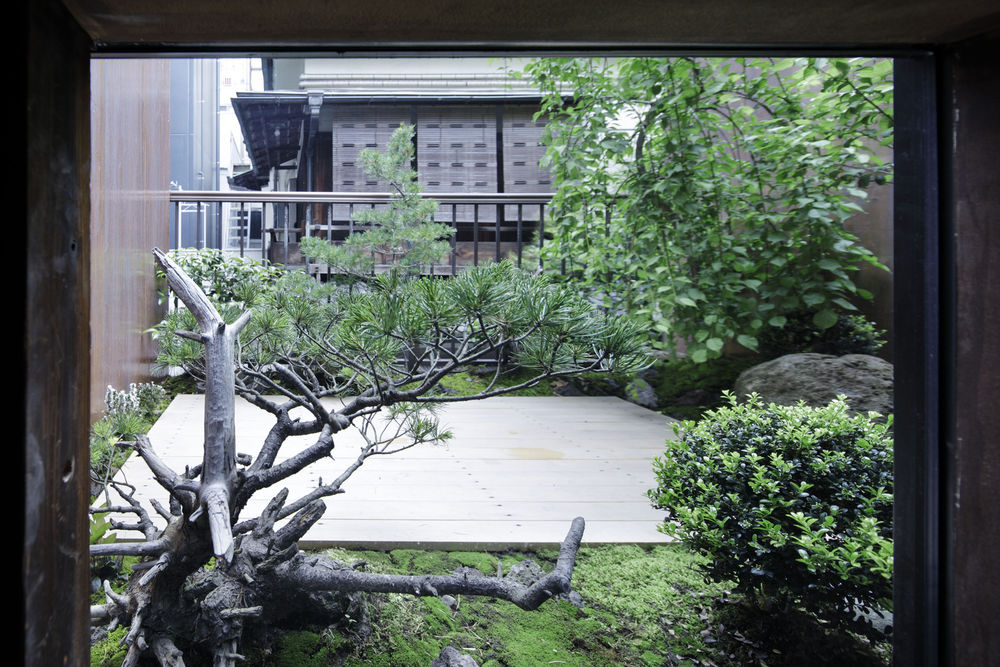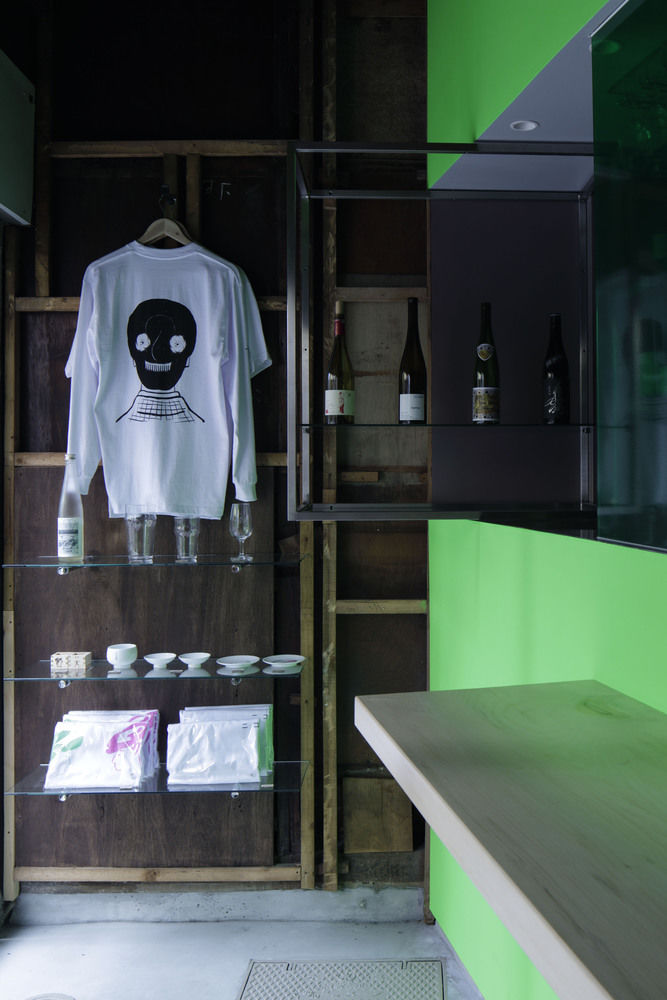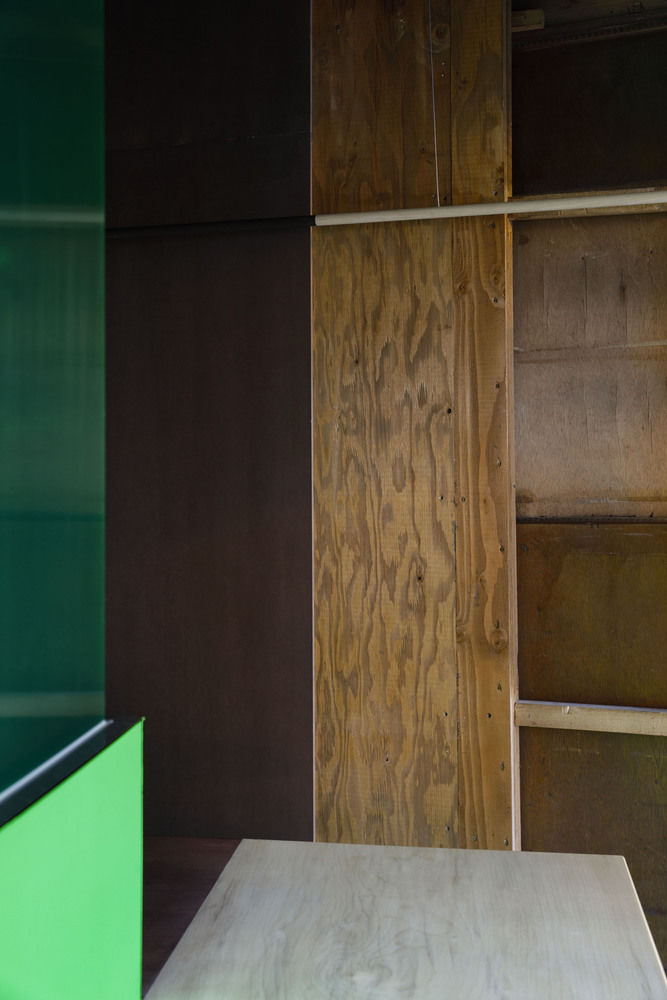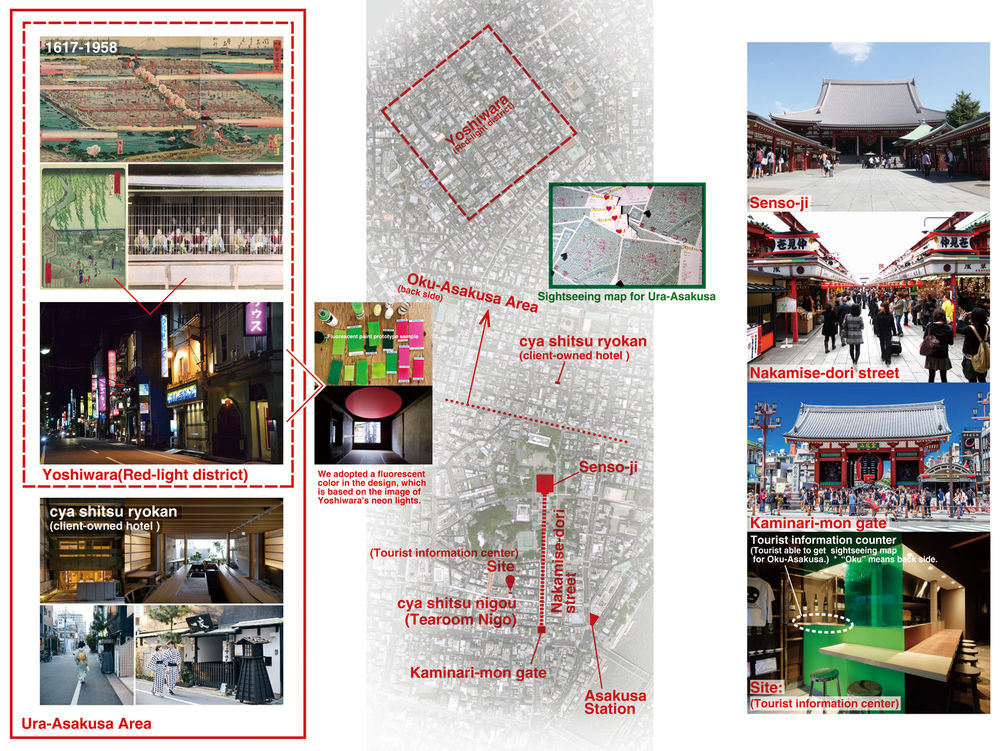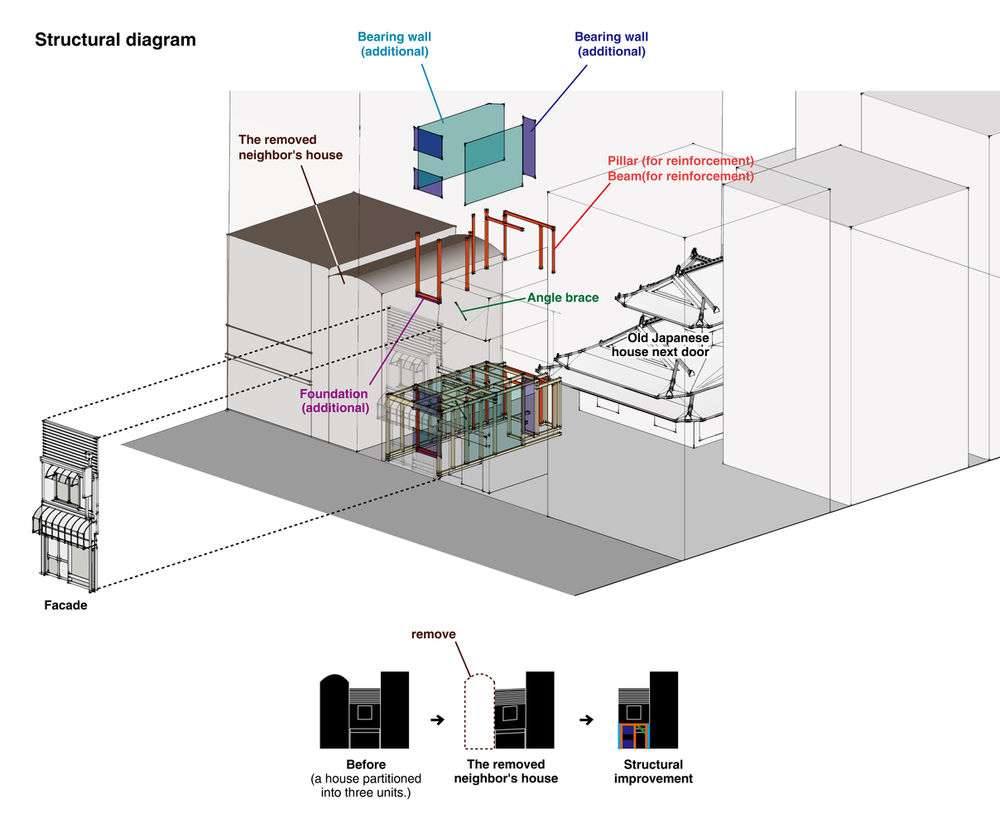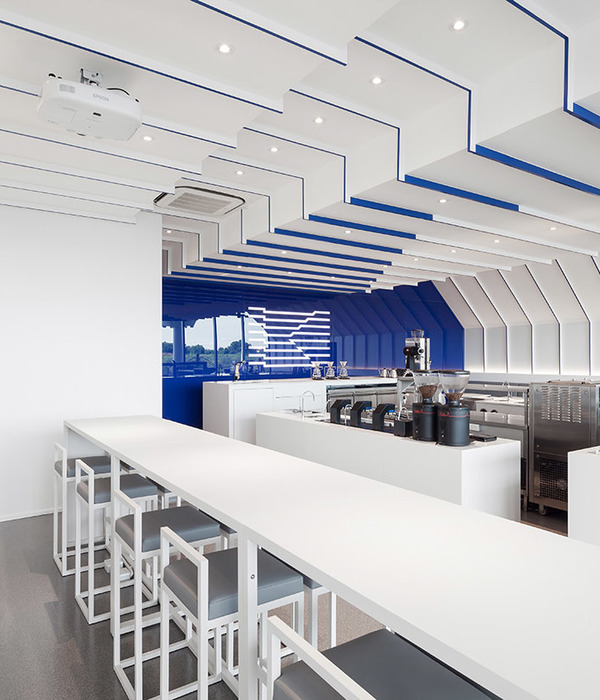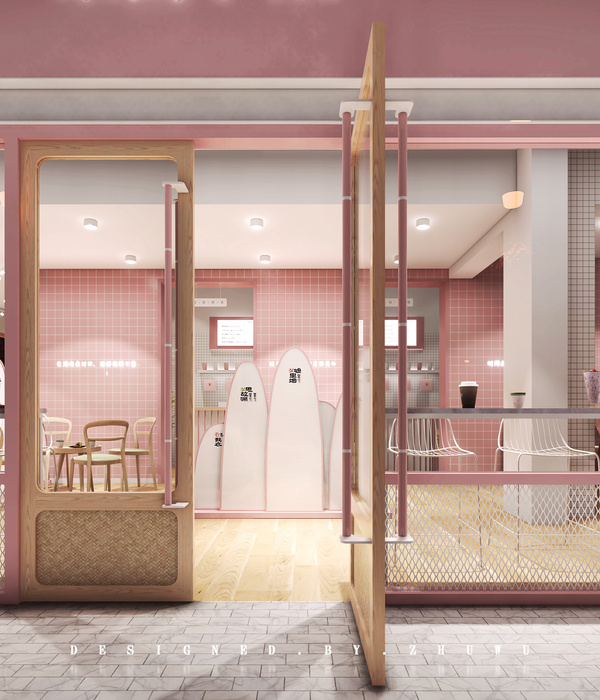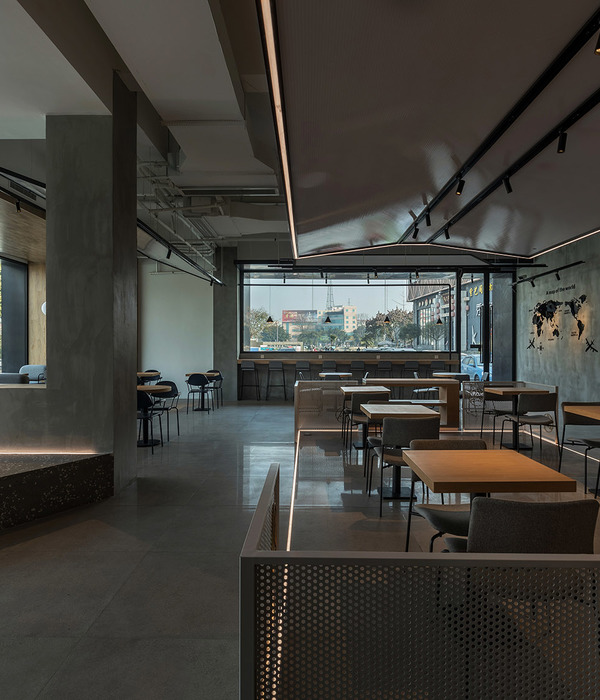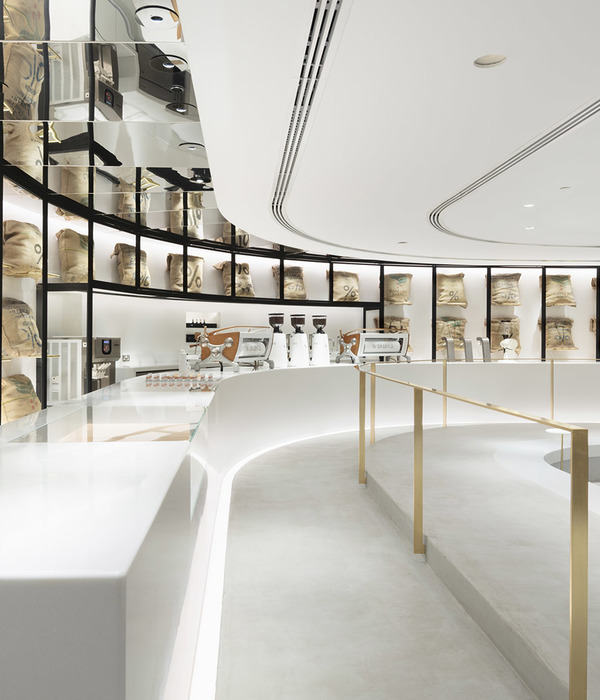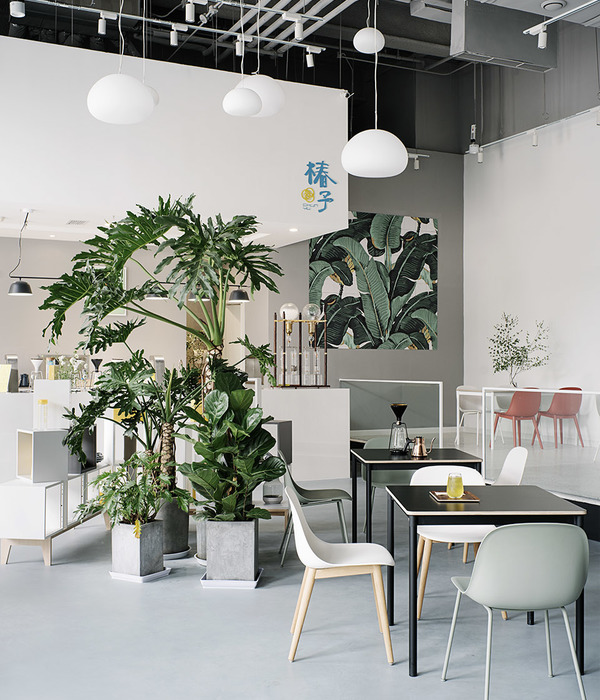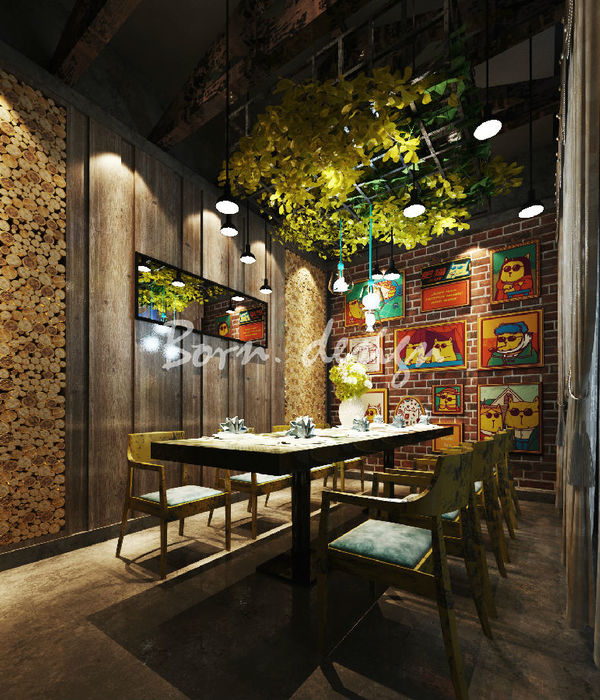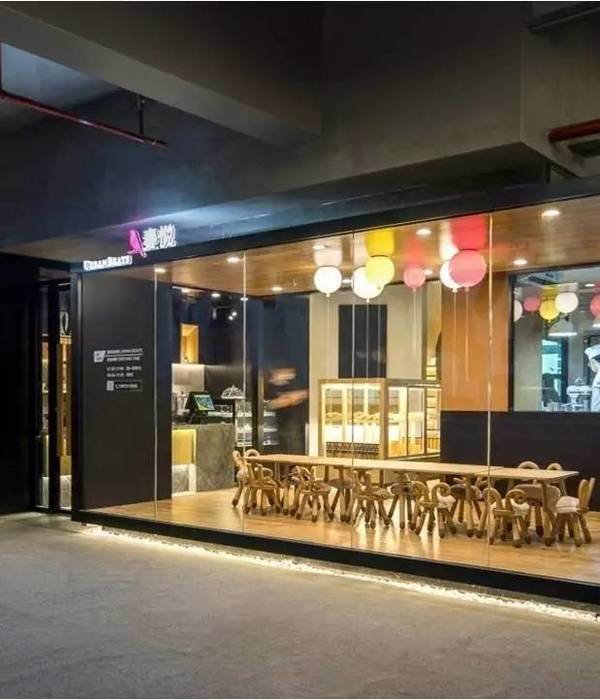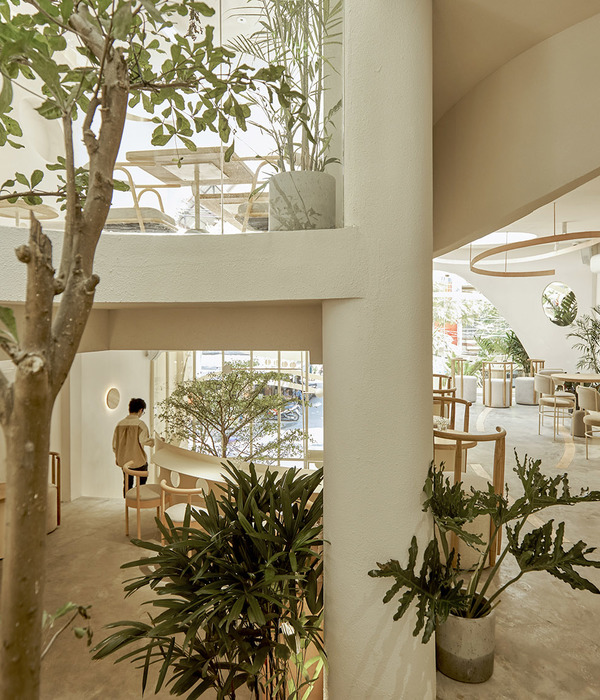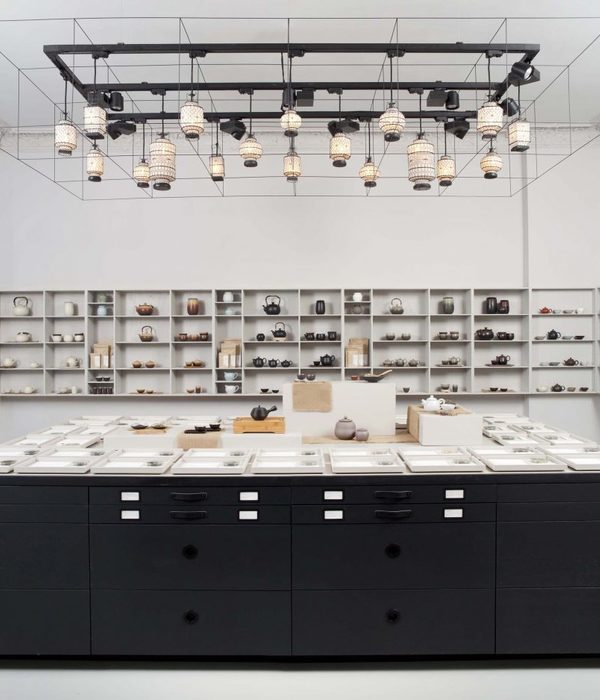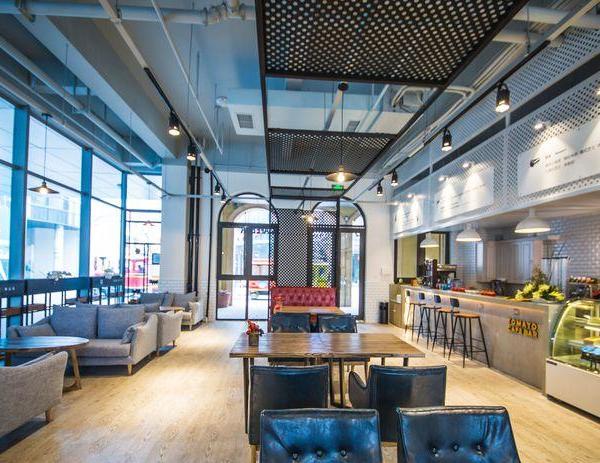东京 Asakusa 茶室 Nigo,融合传统与现代的惊艳设计
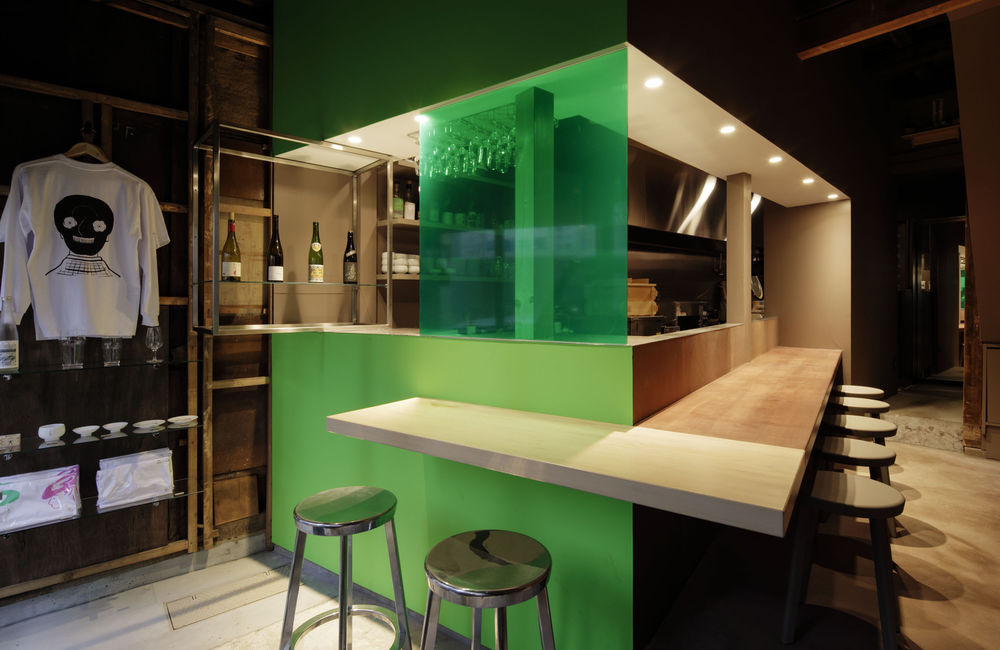
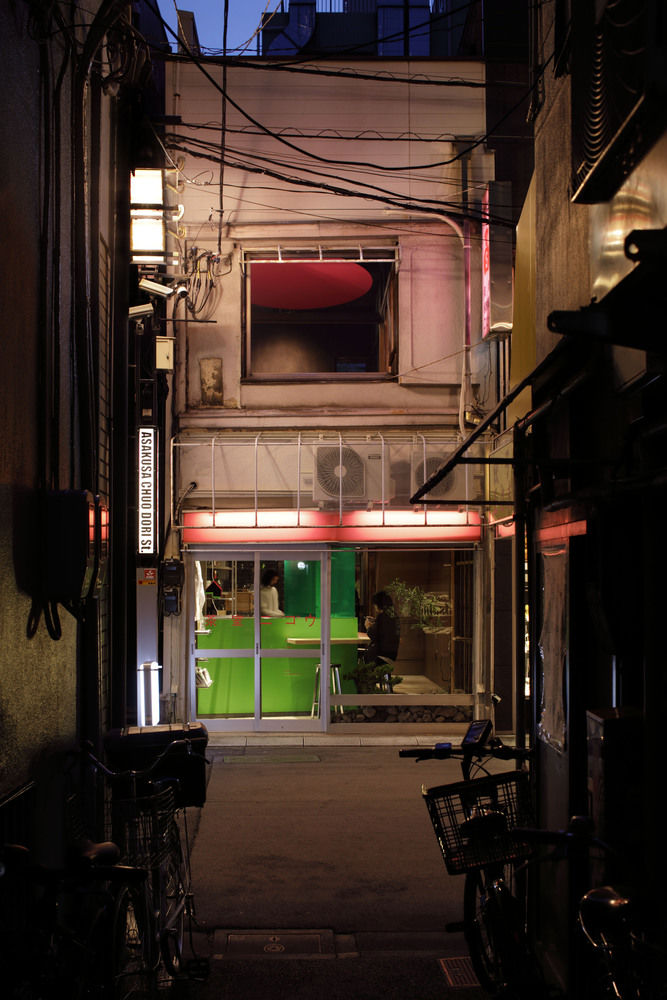
The site is located in Tokyo's old town Asakusa. The street approaching the 1400-year-old Asakusa temple is a popular tourist spot. It is a two-story wooden building situated at the end of a narrow street, just off the main street. We transformed a 70-year-old stamp shop into a restaurant.
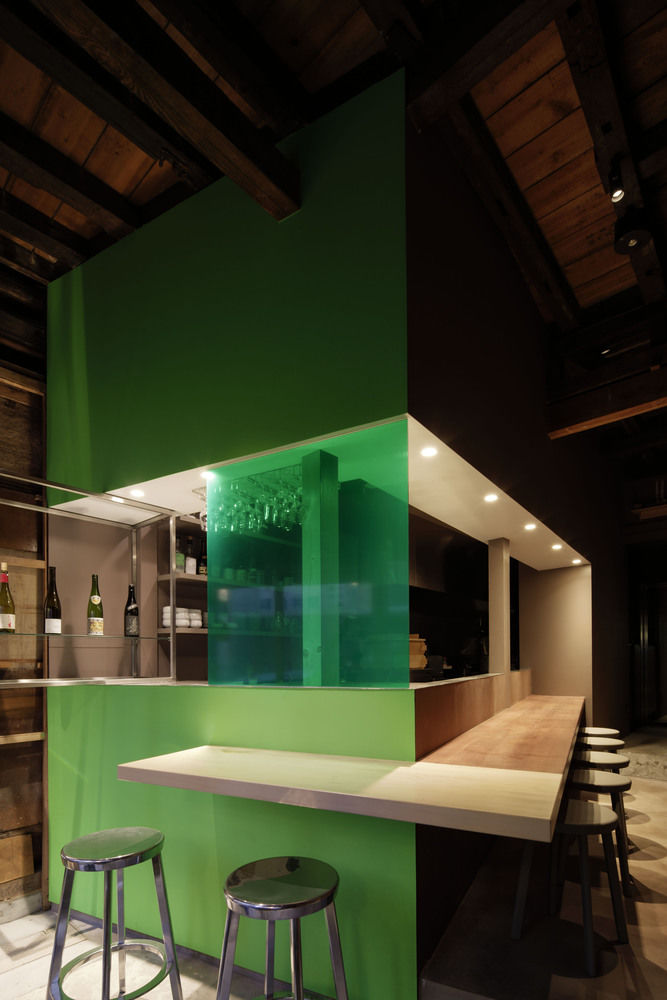
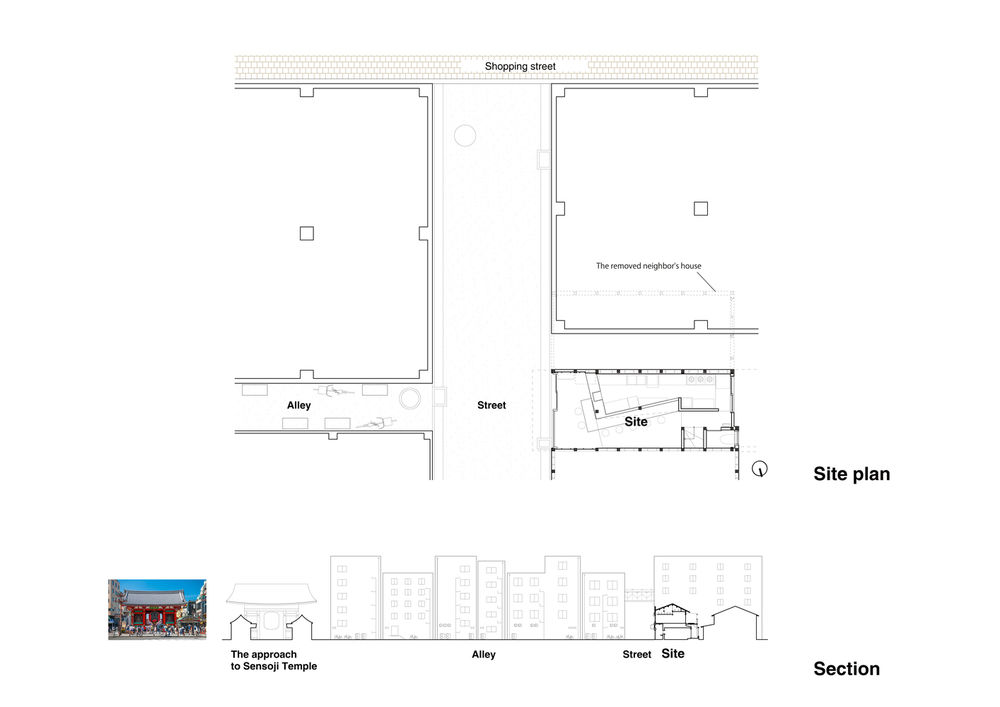
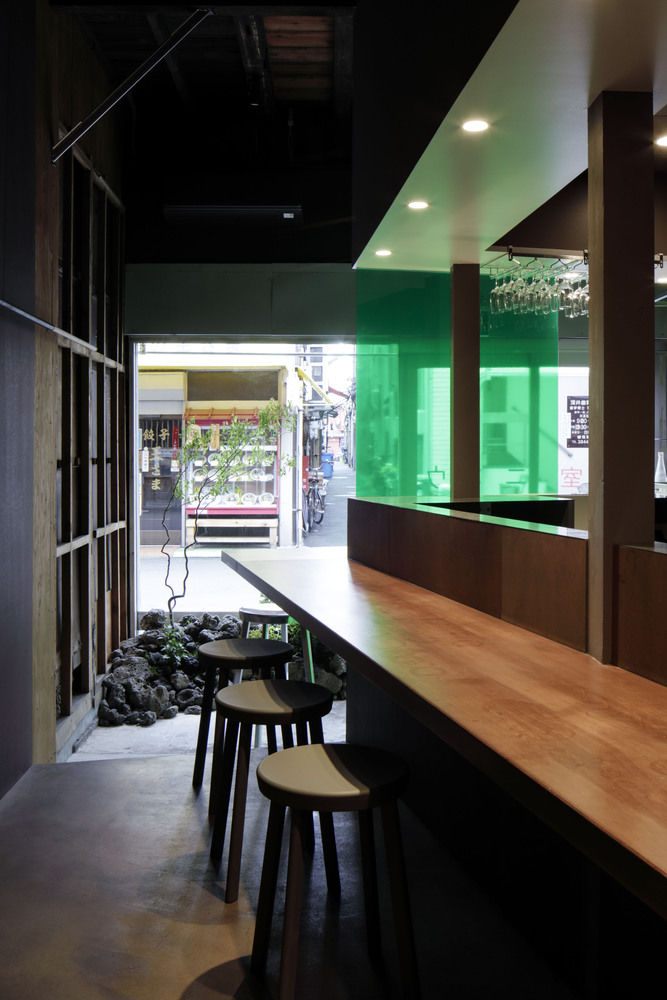
We kept the old building as it was, and installed two geometrical forms: the green walls on the ground floor, and the pink ellipsoid object on the ceiling on the first floor.
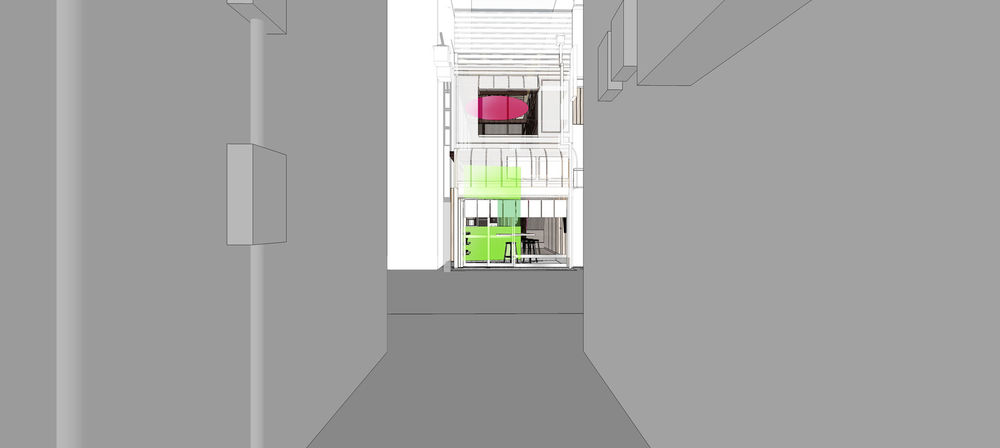
The green walls attract attention from the street. They also function as bearing walls, supporting the tilted structure after the neighboring house was taken down.

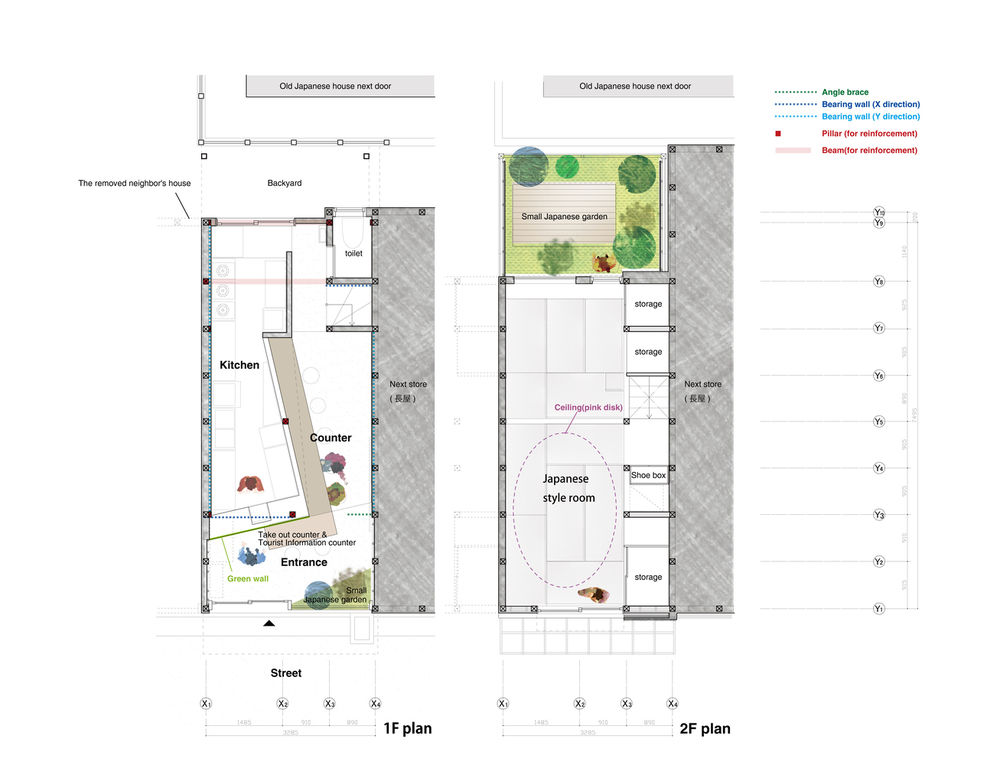
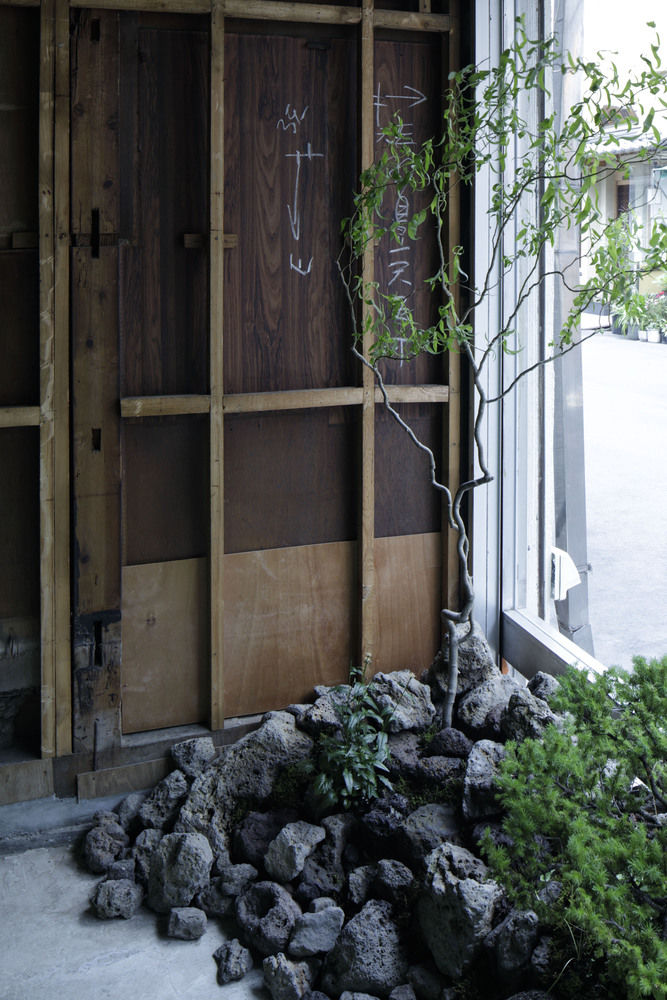
The pink disk is a modern homage to the tearoom, a traditional Japanese architectural style. We changed the round disk to an ellipsoid shape so that it fits the size of the room. It is hanging at a height of 1850mm from the floor and was painted pink. When you sit on the tatami floor and look up, the color effect makes it impossible to keep a viewpoint, and as a result, the depth feels lost. This gives the narrow tearoom-like space a special, tense, atmosphere.
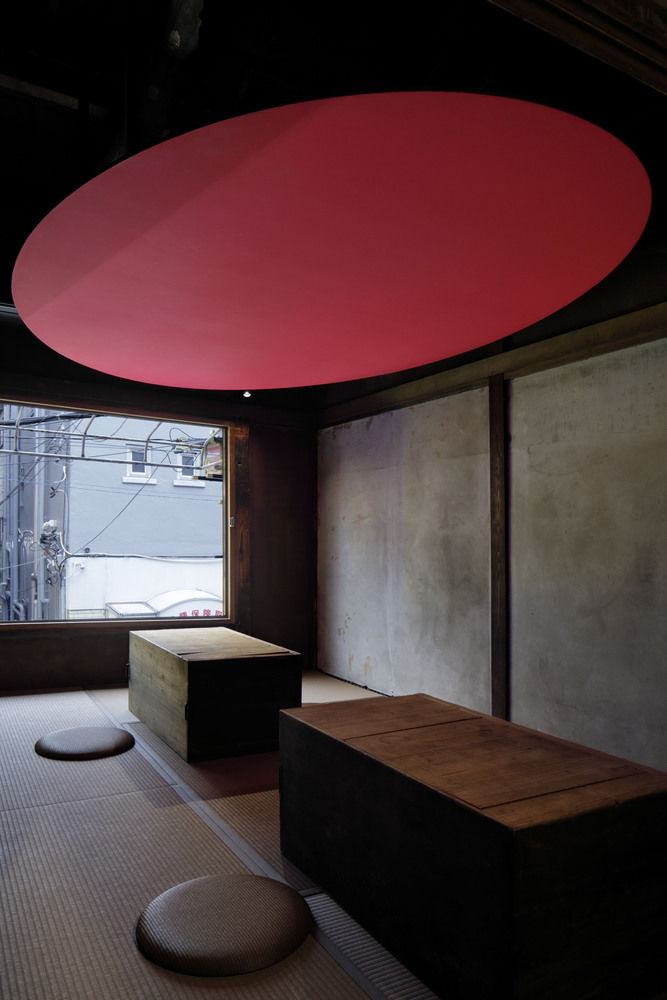
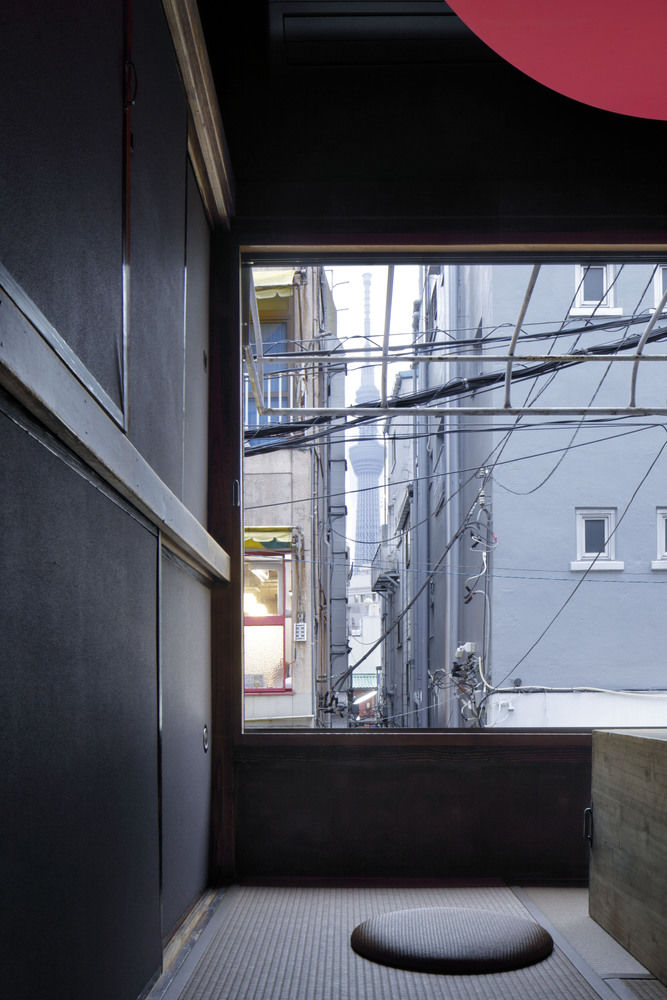
This restaurant also functions as a tourist information center for the Oku Asakusa area. Oku Asakusa is traditionally well-known as a red-light district - such as Yoshiwara - and there are many bars and many colorful signs. The green walls and the pink object symbolize such places.
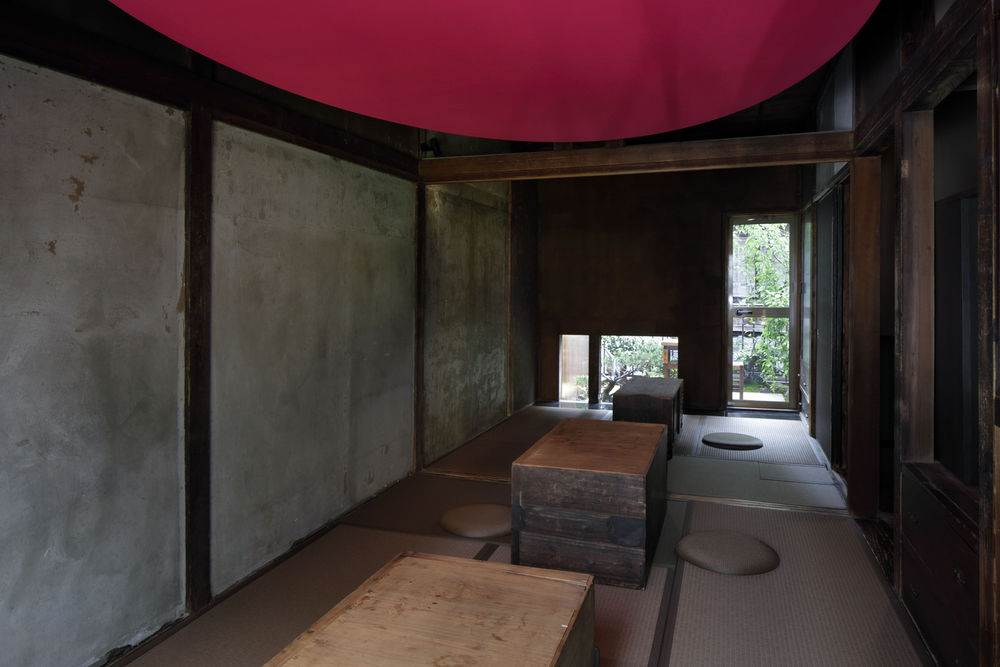
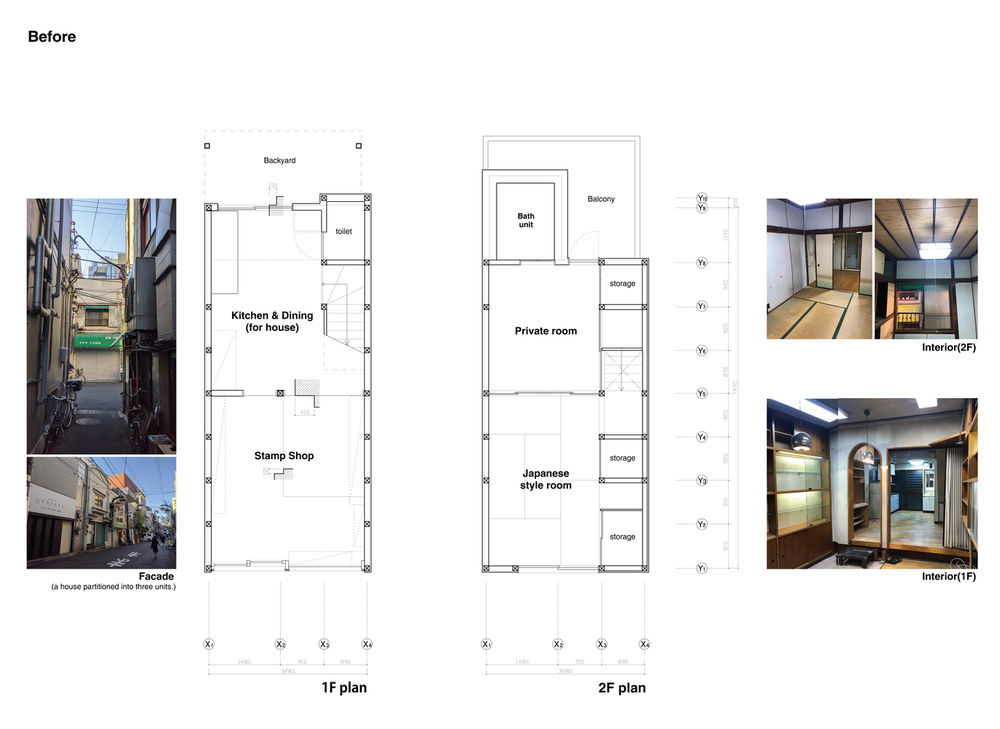
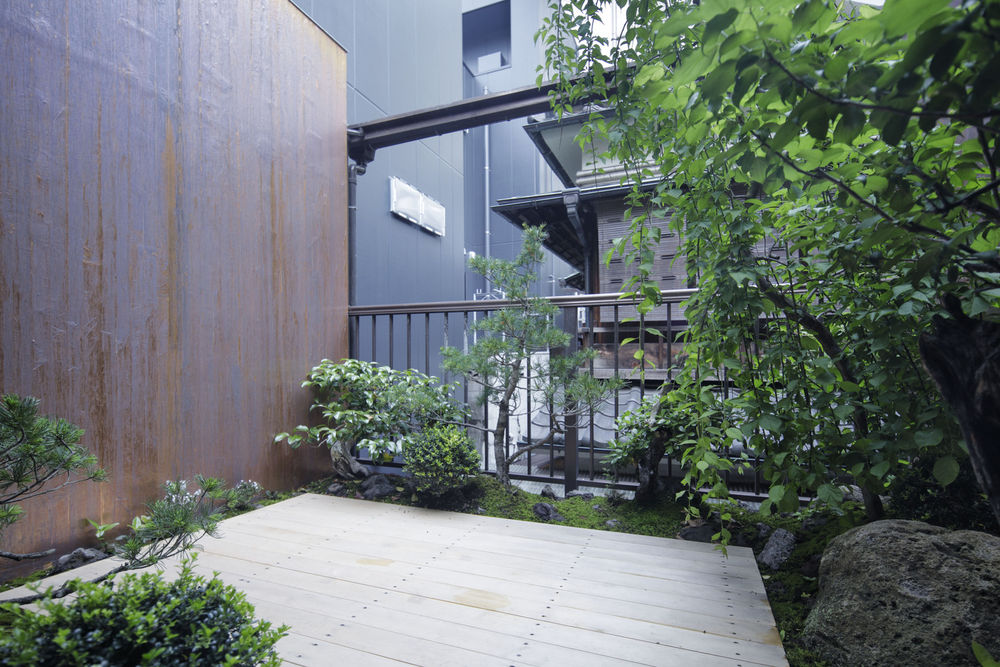
Finally, we would like to explain our use of "shakkei", a traditional method used for Japanese gardening. We created a small tsuboniwa (spot garden) by the entrance of the ground floor and at the end of the first floor. You can see the neighbor's traditional Japanese house on the further side, and also from the window facing the street, you see the new landmark of the area "Tokyo Sky Tree", which was visually "trimmed" by the very narrow alley. We tried to bring in the old and new "shakkei" to this little restaurant.
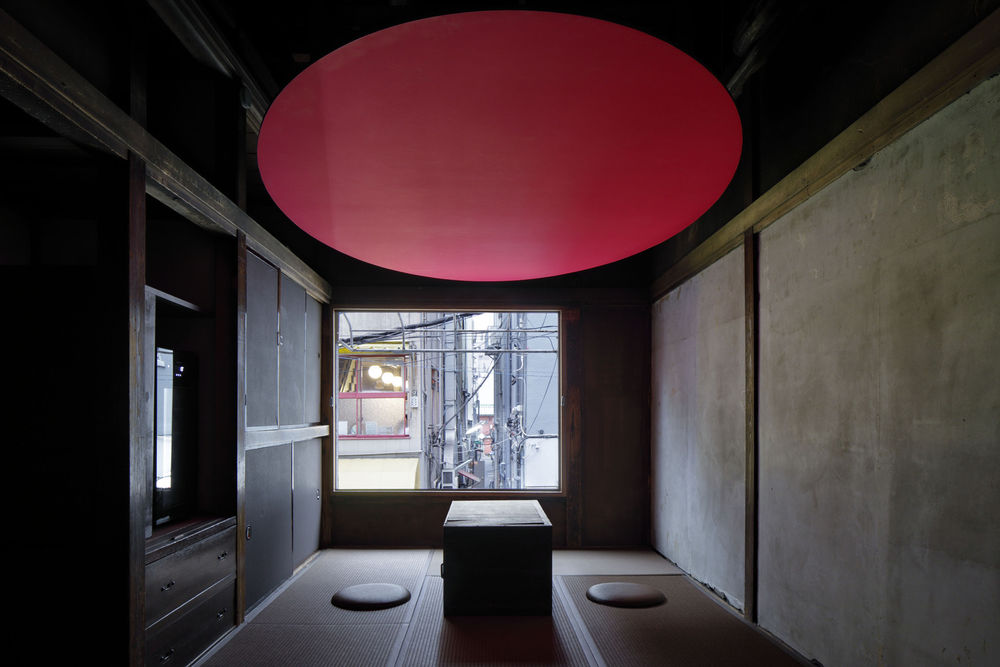
*Additional notes: The name of the restaurant "cya shitu nigou (Tearoom Nigo )" means it is the client's second business (Nigo means second in Japanese). But it also implies "second woman", meaning adulterous lover, evoking the association of the red-light district.
